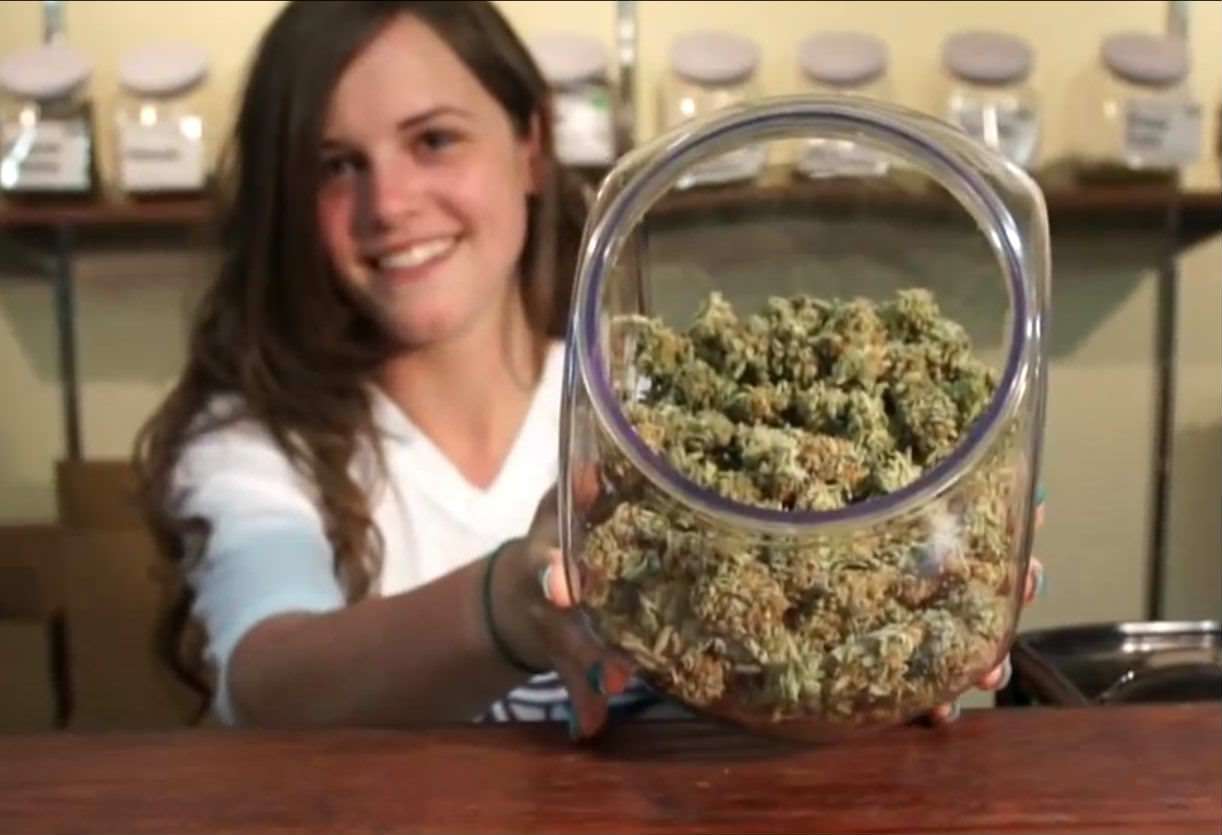New Medical Marijuana Restrictions Look Dead for Now in Washington

Today is the last day of the Washington State Legislature's 2014 session, and the two chambers still have not come to terms on medical marijuana regulation. It looks like the proposed restrictions, including a ban on dispensaries and lower cultivation and possession limits for patients, are dead until next year. The hitch is what to do with revenue from taxes on marijuana sold by the state-licensed stores that are supposed to start opening this summer. Republicans in the House of Representatives want local governments to get some of that money. Although the chamber is controlled by Democrats, they need Republican votes because revisions to I-502, the marijuana legalization initiative that voters approved in 2012, require agreement by two-thirds of legislators until two years have elapsed since the measure took effect.
Republicans claim cities and counties deserve a share of the marijuana taxes because I-502 imposes an unfunded mandate. Given I-502's money-saving rationale, that argument does not sit well with Democrats. "The argument for the initiative was that it's going to lower public safety costs, and now they're saying it's going to increase public safety costs with absolutely no data," complains House Finance Committee Chairman Reuven Carlyle (D-Seattle).
More plausibly, Republicans argue that revenue sharing will encourage local governments to lift bans and moratoriums on pot shops. "We've got to get this system geographically rolled out across the state in order to be effective," says Rep. Cary Condotta, (R-East Wenatchee). "If you only have one part of the state participating, the other side is not going to come over and buy. They're going to buy from their existing sources."
In addition to black-market dealers, those sources include untaxed, unregulated dispensaries, hundreds of which operate as "collective gardens" under Washington's medical marijuana law (mainly in the western part of the state, where local and federal officials have been less hostile). A bill passed by the House last month would have banned dispensaries as of May 2015; a bill approved by the Senate on Saturday would have given them four more months. So even if the legislature had agreed on a final version, the new pot stores would have faced competition from the dispensaries for another year or so. If the legislature passes a bill next year, that period presumably will be extended.
Supporters of the ban say it is necessary to maximize tax revenue and create a marijuana market that is regulated strictly enough to avoid federal intervention. Jenny Durkan, the U.S. attorney for the Western District of Washington, has warned that a parallel distribution system for medical marijuana is "not tenable." That position suggests the failure to pass legislation this year could prompt a federal crackdown on dispensaries once the new stores are up and running. "We are squarely back in the crosshairs of the feds," says Kari Boiter, a lobbyist who works with Americans for Safe Access. The Seattle City Council already has told the 200 or so dispensaries in that city that they must close by January 2015 unless they obtain state licenses.
Despite the uncertainty, Steve Sarich of the Cannabis Action Coalition is celebrating the defeat of new restrictions on medical marijuana. "We beat back the attack on medical today and defeated the big money lobbyists hired by the 502 businesses that wanted to force patients to shop at their recreational stores and turn us into criminals," he said in a statement yesterday. "We won't have to pay pirate prices for mediocre schwag after all." He promised that "we'll be back with the best medical bill in the country next January, and we've already lined up bipartisan support for it."


Show Comments (3)